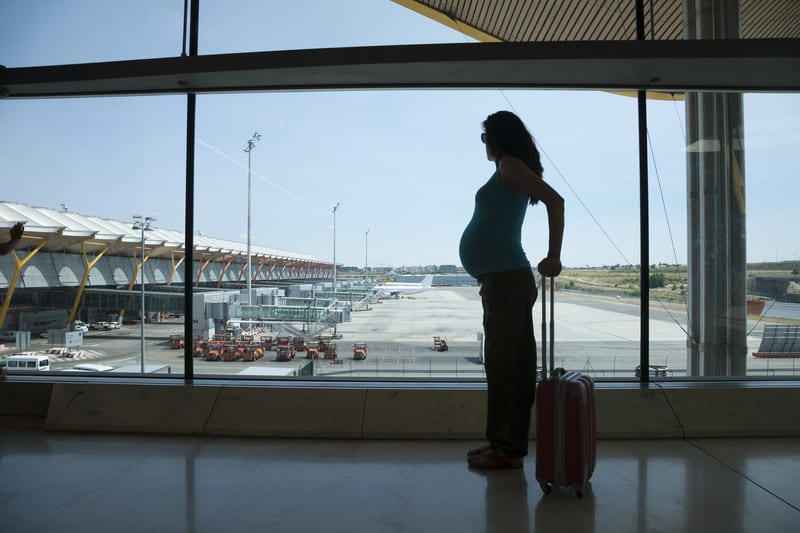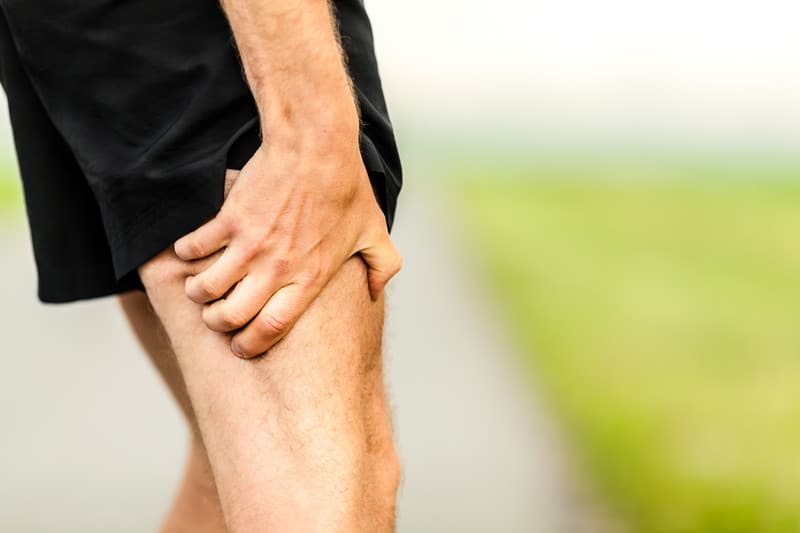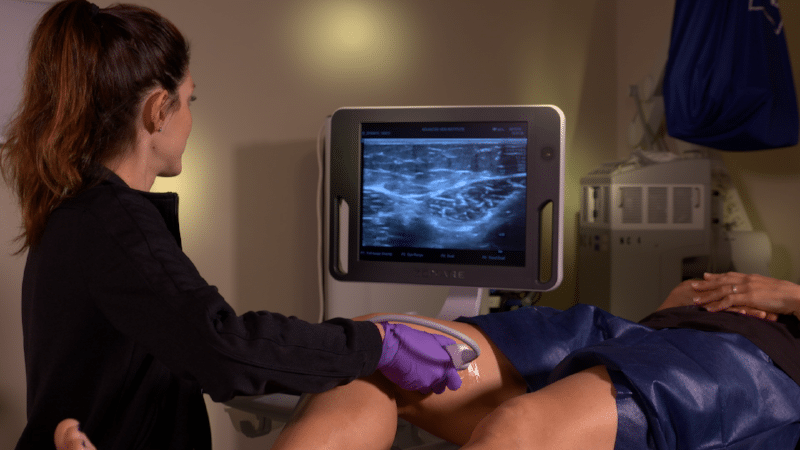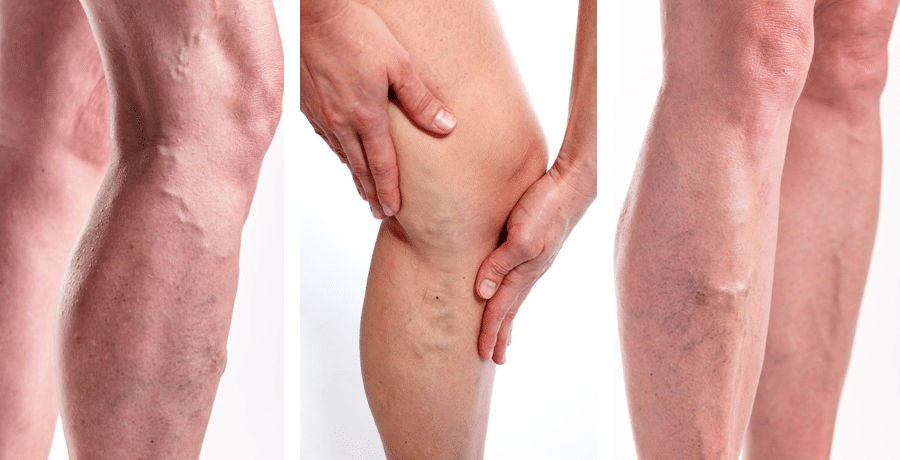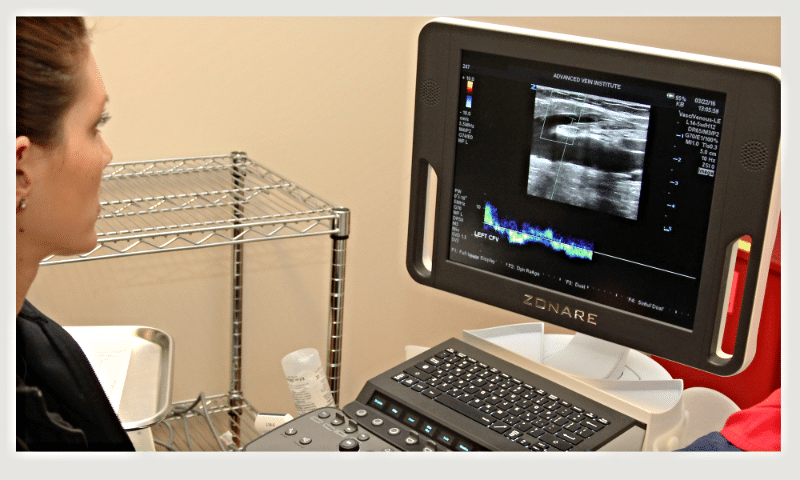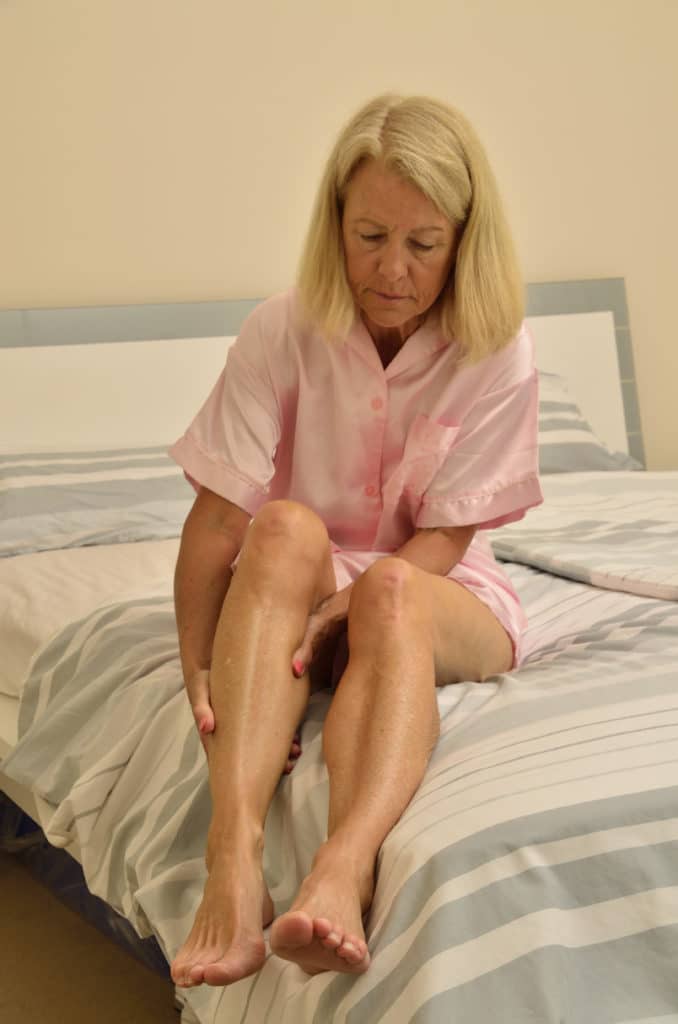
Why Do Varicose Veins Hurt Most at Night?
If you think that your varicose veins hurt more at night, you are probably not imagining this. The reason why, in a word, is contrast. This might make more sense once it is explained...
Especially since the advent of electrical lights, it can be easy to forget that nighttime is for rest. As daylight wanes, everything in nature gets quieter and darker and cooler. Only we humans maintain our bustling pace right up until the point where we drop into bed. (Then we twiddle our thumbs while we wait for sleep to come. Or we wake at odd hours, minds already racing).
Even on the cellular level, our bodies are winding down as the evening progresses, preparing for a quiet restorative time.
Symptoms of Varicose Veins Increase During Day
Throughout the course of the day, though, varicose vein pain and discomfort tends to get amped up. Gravity pulls blood against compromised valves and leads it to pool in the lower legs. Agents of inflammation also get concentrated at these sites, and the nerve receptors that register pain start to fire more furiously. This can be tolerable—as long as our brains are busy and distracted from the leg pain.
So really...why do varicose veins hurt most at night?
When our bodies are trying to rest, especially against the backdrop of the dark and the quiet, every sensation seems magnified: bumps, sounds, lights—and these throbbing aches and pains.
Varicose veins and leg pain plus leg cramps can make it difficult to get restful sleep. It can take hours for that discomfort to ease off as lymph and other metabolic substances are taken back up into circulation. And if you happen to point your toes as you stretch out in your sleep, you might be awakened by the startling discomfort of a muscle cramp. Often by the time equilibrium is restored, it is time to get up and start the whole process again.
There Are Things You Can Do To Ease Nighttime Varicose Vein Pain:
- First of all, if varicose vein pain is keeping you up at night, or if you are experiencing any of the other symptoms of chronic venous insufficiency, it is time to have your vascular health checked by a qualified vein specialist.
- Ease into the evening. Put your legs up for a bit, especially at the end of the day, and give your veins a chance to calm down before you go to bed. Perform a little local self-massage to encourage circulation and take some pressure off your veins.
- Perform some gentle exercise. Walking, yoga and other gentle forms of exercise are great for relaxing the entire body and promoting healthy respiration and circulation of blood and lymph.
- Ensure proper hydration. Drinking adequate water is key for promoting healthy circulation, keeping blood vessels and tissues healthy and pliable, and for preventing muscle cramps.
- Eat a healthy diet, full of vitamins, minerals and macronutrients. There is not enough space here to say all that needs to be said about the importance of taking care of your body through the food you eat. However, there are lots of great nutrition resources out there.
- Stretch out those muscles. Tight and constricted muscles prevent the healthy circulation of blood and lymphatic fluid through the legs. And tight muscles are more likely to ache and to cramp up.
Of course, a qualified vein doctor will have more suggestions for easing and eliminating the discomfort of your enlarged veins. Using the results from a detailed examination and duplex ultrasound, they can tailor treatment options for you, and have you sleeping comfortably through the night in very little time.
DVT and Varicose Veins during Pregnancy Pregnancy is a risk factor for the development of a blood clots with an incidence that is 4 to 50 times higher compared to non-pregnant women. Increased risk for development of a blood clot is highest in the postpartum period, with the most common occurrence of clot formation in…
Read MoreDeep Vein Thrombosis and Travel Ready to enjoy some summer time travel? Make sure your trip is not shortened by a serious health concern. Small, cramped seating on an airplane, or sitting in a car for a prolonged period of time, may be more of a problem that just causing discomfort. Inactivity in a confined…
Read MoreIn the second of this educational video series, Jilanne Rose talks about the pain involved in various Varicose Vein Treatments. In some cases it’s negligible! Transcript The ease with which we can eliminate varicose veins depends solely on what type of underlying problems you have. That question can’t be easily answered until after a thorough…
Read MoreWhat is Restless Leg Syndrome Restless leg syndrome (RLS), also called Willis-Ekbom disease (WED), is a common sleep-related movement disorder characterized by an unpleasant urge to move the legs. Symptoms often occur during periods of inactivity; particularly in the evenings. This urge to move is sometimes relieved by moving ones legs. During sleep, most patients’…
Read MoreOur own Dr. Jilanne Rose answers questions on Varicose Veins, Spider Veins, Vein Treatments and Insurance Coverage for Vein Treatment in Arizona. Jilanne is a true Varicose Vein Specialist as she has years of education and has been trained by the top experts in the field. She has performed over 10,000 vein care procedures herself. This is one…
Read MoreRisks of Deep Vein Thrombosis Deep Vein Thrombosis (DVT), also referred to as Deep Venous Thrombosis, is a blood clot located within a deep vein, usually in the leg. A blood clot that breaks free and travels up to the heart or lungs is referred to as a Pulmonary Embolism (PE), which can stop blood…
Read MoreWhat Causes Spider Veins? For many people who suffer from spider veins, one of their biggest questions is “What causes spider veins?” Spider Veins, also known as telangiectasia, are small veins located just under the surface of the skin. Most often found on the leg, they can either be very small and hardly noticeable, or…
Read MoreAre varicose veins covered by insurance? The answer is YES, varicose vein treatment is covered by most commercial insurance carriers such as Blue Cross Blue Shield, Champus, Aetna, Cigna, Humana, Health Net, Tricare, UMR, and UnitedHealthCare to name a few. Medicare and AHCCCS will also cover treatment. Many people only try home treatment for varicose veins…
Read MoreAre all vein clinics created equal? No they are not! Med Spa – You can turn on the television or radio at any time of the day and hear countless advertisements for “quick” or “painless” vein treatments. Go to this clinic or that medspa, and they assure you that your legs will look great in no…
Read MoreAside from conservative therapies for vein insufficiency, when your symptoms get to the point that these no longer work, or you want a more permanent solution, there are several methods to treat vein disease. All of them, regardless of method, aim to improve circulation and minimize symptoms by eliminating the abnormal vein. These methods include…
Read More
